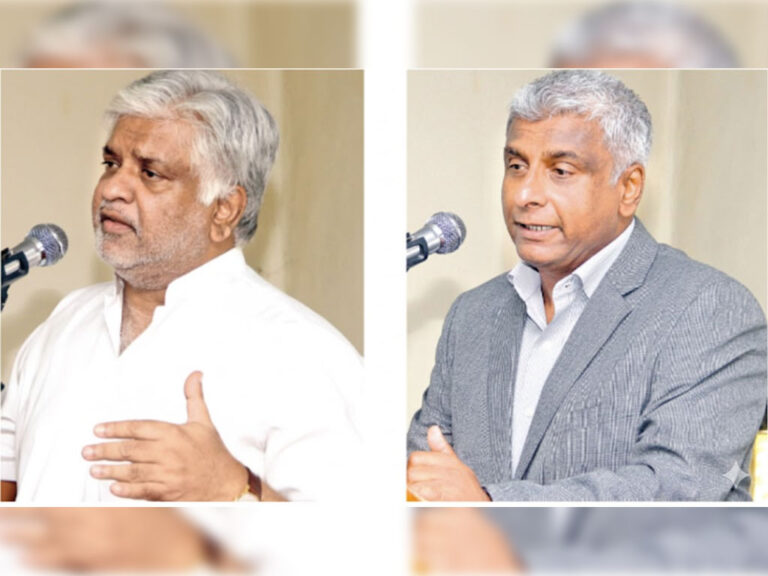
An extensive affidavit filed in the U.S. District Court for the Central District of California has officially confirmed that Zahran Hashim was the orchestrator of the 2019 Easter Sunday bombings in Sri Lanka. The document, dated December 11, 2020, was sworn by FBI Special Agent Merrilee R. Goodwin, a veteran in global counter-terrorism with more than two decades of experience.
The 70-page affidavit offers a detailed account of the planning and execution of the attacks, which killed 268 people, including five American citizens, and injured over 500 others. It reveals that the attackers were part of a group identified as “ISIS in Sri Lanka,” led by Zahran Hashim, who pledged allegiance to ISIS and operated under direct authorization from the group’s leadership.
The attacks, carried out by eight suicide bombers, targeted three churches and four major hotels across Colombo, Negombo, and Batticaloa. The bombings were strategically coordinated to inflict maximum casualties during the Easter Sunday service—marking one of the deadliest terrorist incidents in Sri Lanka’s modern history.
The affidavit asserts unequivocally: “Zahran Mohamed Cassim, also known as Zahran Hashim, was the mastermind behind the Easter Attacks and the self-proclaimed leader of ISIS in Sri Lanka.” This claim is not speculative—it is supported by communications between Zahran and ISIS leaders, video footage of his oath of allegiance to ISIS leader Abu Bakr al-Baghdadi, and physical evidence recovered from the attack sites and safe houses.
The FBI’s investigation names three additional individuals as co-conspirators: Mohamed Naufer (Naufar), Mohamed Anwar Mohamed Riskan (Riskan), and Ahamed Milhan Hayathu Mohamed (Milhan). These men are charged with providing material support to ISIS and undergoing military-style training. Naufer, identified as the “second emir,” was reportedly in charge of recruitment, propaganda, and training, organizing combat sessions attended by aspiring suicide bombers.
Among the affidavit’s many disturbing details is the account of Zahran’s wife detonating a suicide bomb during a police raid following the attacks, killing herself, three of their children, and three police officers. In a separate operation just days later, Zahran’s father and two brothers were killed during a raid at a safe house in Kalmunai, following an exchange of gunfire and a deadly explosion. These incidents, according to the affidavit, highlight the depth of the group’s radicalization and willingness to die rather than be taken alive.
The attackers used encrypted communication platforms such as Telegram and Threema, constantly switched mobile devices, and were instructed never to use real names or share personal details during training. Their methods reflect a high degree of organization, far beyond that of a locally rooted extremist group acting independently.
Digital evidence retrieved from Facebook, Google, and Microsoft further implicates the main suspects. Social media posts and private messages revealed open admiration for ISIS, discussions about jihadist strategies, and the circulation of propaganda. In one particularly chilling message, Naufer declared, “The United States is the enemy of Allah.” Zahran and Naufer were also found to have exchanged official ISIS newsletters and documents.
The FBI’s Terrorist Explosive Device Analytical Center (TEDAC) provided forensic confirmation that nitrite ions—compounds associated with nitrate-based explosives—were present at the blast sites. This material matched what was discovered in safe houses, reinforcing the claim that the group used standardized ISIS methods to construct their bombs, including the use of water gel explosives, batteries, timers, and shrapnel-filled backpacks.
The FBI acted swiftly, deploying agents to Sri Lanka within hours of the attacks. They assisted in medical evacuations, collaborated with local security forces, and facilitated the repatriation of U.S. citizens. Despite the scale of the FBI’s involvement and the depth of their findings, the affidavit remains largely absent from Sri Lanka’s political and media conversations.
Instead, the public discourse in Sri Lanka has been dominated by political speculation, conspiracy theories, and unfounded accusations, often diverting attention from factual evidence. The failure to acknowledge or act upon this affidavit has resulted in a missed opportunity for accountability and justice—not only by the government but also by the media and civil society.
This affidavit is a crucial piece of documentation. It provides names, evidence, motives, and even confessions. It outlines in comprehensive detail how a domestic extremist network, operating under international direction, carried out an attack that shook the nation to its core.
As Sri Lanka continues to deal with the consequences of the Easter Sunday bombings, the facts in this affidavit demand recognition. The victims and their families deserve more than speculation—they deserve justice built on truth. The evidence is available. It is time for Sri Lanka to confront it.
The United States government has identified the mastermind. The world is watching. It is time Sri Lanka listened.




SOURCE & IMAGES :- SRI LANKA GUARDIAN




